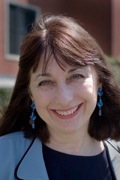
Visiting US reading expert Dr Maryanne Wolf has called for greater recognition of dyslexia and for schools to embrace evidence based teaching methods to help those who struggle with reading and writing to avoid a lifetime of disadvantage.
Presenting to an audience of almost 500 education professionals and parents in Melbourne, Professor Wolf expressed surprise and disappointment at the reluctance of some Australian states, particularly New South Wales, to recognise dyslexia as a learning disability.
"Let me tell you, dyslexia is real" she stated, pointing out that there is a clearly identifiable proportion of people to whom reading and writing is a struggle and that if this is not addressed during their early school years, then these kids will find school harder than their peers and will in all likelihood carry their disability into adulthood, limiting their social and career prospects.
The real question of course is not whether dyslexia exists, but what do we do to help these kids. Professor Wolf explained that while dyslexics are often highly capable people who may excel in other areas, they have a clearly identifiable disability in comparison to their peers with their reading fluency and comprehension. Her research has been focussed on identifying the mechanisms that enable us to read and on developing interventions to improve reading, writing and spelling capabilities for those who struggle.
Professor Wolf was unambiguous when talking about how schools should teach reading. A critical learning from her own research and that of many others, is that schools and education departments must move away from whole language immersion methods for developing reading skills and must instead focus on phonics based, explicit teaching, which is essential for kids with dyslexia and will do absolutely no harm to all the other kids.
She also called on teachers to stop being afraid of damaging the self-esteem of kids by pulling them out of class for additional small group reading tuition. Her experience shows that dyslexic kids not only benefit hugely from these small group interventions but also that far from being stigmatised by being taken out of class, they often relish the opportunity to try and catch-up with their peers. Surely, she pointed out, this is better than a lifetime of low self-esteem resulting from struggling to do something that most around them seem to find so natural and easy.
Finally, Professor Wolf called on schools and education departments to base their teaching on approaches which are proven effective by research and have empirical evidence from field studies. She explained how the RAVE-O program has been developed based on the research and exhaustive field testing, resulting in a small group intervention program which really does help struggling readers to bridge some of the gap to their non-dyslexic peers (see the external link below for more on the research evidence supportng RAVE-O).
Professor Maryanne Wolf was in Australia to receive the LDA (Learning Difficulties Australia) 2016 AJLD Eminent Researcher Award. The comments above are taken from her presentation in Melbourne which was one of a series of seminars she gave in Brisbane, Sydney and Melbourne, titled Tales of the Reading Brain: Reading Development, Dyslexia, and the Digital Culture.